Five Years Later, Wyant Continues To Inspire and Break Barriers
Should Gender Dictate Opportunity? Why Shouldn’t A Woman Be The Head Coach Of A Men’s Collegiate Team?
Kim Wyant is the only woman to lead a men’s National Collegiate Athletic Association soccer program and the first to lead a men’s team to the NCAA Tournament. #VioletPride #WeAreNYU
Kim Wyant has always been a trendsetter in her own way. One of the original members of the U.S Soccer Women’s National Team, Wyant is the head coach of the New York University (NYU) Men’s Soccer Team.
A pioneering woman who has guided the Men’s NYU team to the NCAA Division III tournament, Wyant is a highly talented and inspiring coach.
Wyant is one of the very few women who coach NCAA men’s teams. Humble, relaxed and at ease with herself, Wyant is nevertheless driven to achieve and to build a winning team.
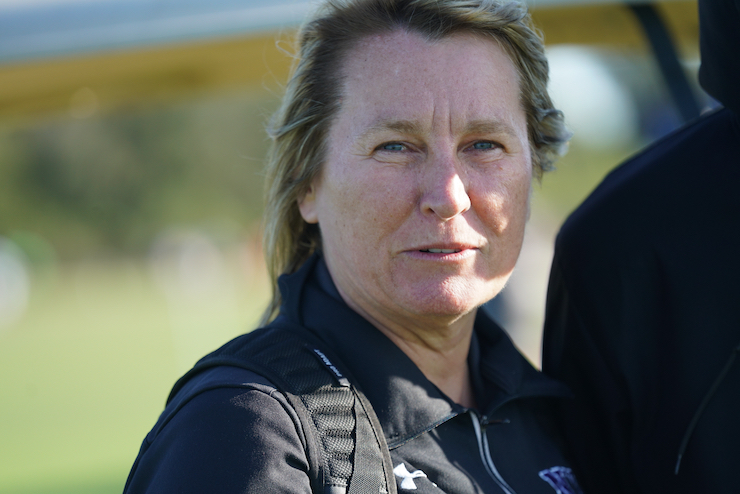
Diane Scavuzzo Interviews New York University Men’s Head Coach Kim Wyant:
Diane Scavuzzo: So Kim, tell me, how do you see yourself as a role model for women in soccer?
Kim Wyant: I am super proud of what I’m doing. Women, girls, and even men look at this situation and they are proud of me as well. I get a lot of “Thank Yous” and “I think it’s really neat what you’re doing” and I always am humbled by — But, I also feel surprised, because I really just am a coach.
I want to do a good job as a coach.
I feel I’m doing a good job as a coach and I’m producing good results at NYU. And, so I don’t really look at it as, “I’m a role model.”
But I get it, women look at my coaching men’s collegiate soccer and they say, “Wow, it is really great that this is happening.”
Diane Scavuzzo: So why do you think there are so few women coaching boys or men’s soccer?
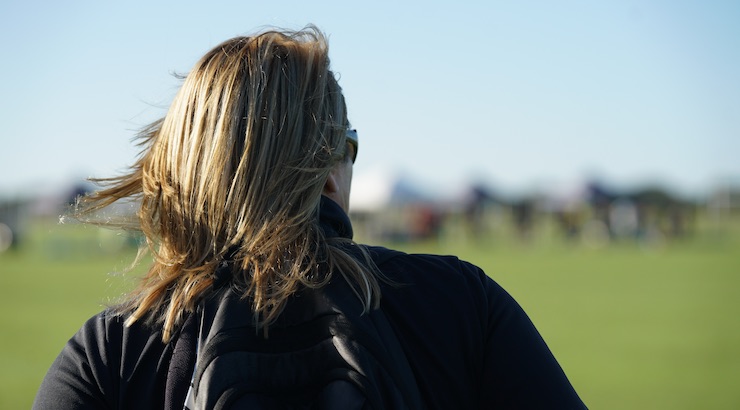
Kim Wyant: I always say, it’s a very complex question and it’s a very complex answer.
I just think it takes time and it’s slowly changing because women can coach men. As long as they’re qualified, and as long as they’re professionals.
There’s no reason why women can’t coach men.
I do see more women working in Academy teams, even if it’s being the strength and the speed and conditioning coach.
Diane Scavuzzo: Do you see more women coaching today on the boys and men’s side of the game?
Kim Wyant: I do, it is still not enough.
Diane Scavuzzo: It almost seems you’re defying the “natural” order that a woman conceivably can’t or wouldn’t know how to coach men — simply because of the gender. Why do people think that it’s a mismatch for a woman to be coaching collegiate men’s soccer?
Kim Wyant: It is very interesting — I think when people say, “Oh, Kim Wyant coaches the men’s soccer team at NYU,” most people stop and think about it — Right? It makes them stop and think, whereas there’s no stopping and thinking about a man coaching a women’s team.
Diane Scavuzzo: Nobody ever questions any man because they coach a women’s team…
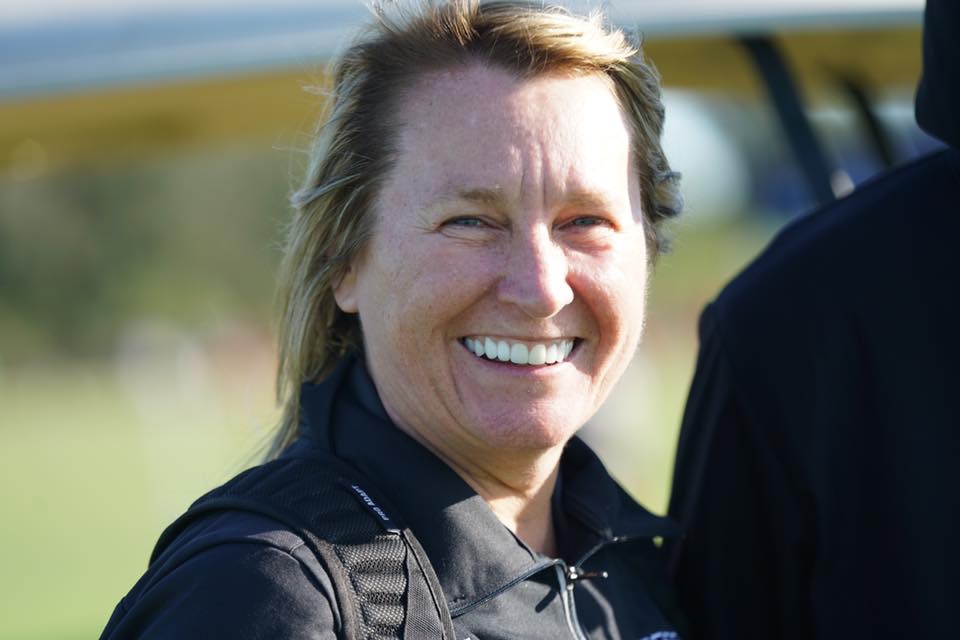
Kim Wyant: It is unusual. It’s not happened before.
And you can look at all of the DA teams that are at the U.S. Soccer Development Academy 2019 Winter Cup in Florida this weekend — you could probably go down to the Boy’s U15 group and you would not find one woman as the head coach of any of these teams.
So you have a system, actually not a system, but you have an institution where it’s male-dominated by very good coaches, and there are not women who are even coaching at the younger age groups…
Diane Scavuzzo: Do you think your gender impacts the way you coach?
Kim Wyant: No, I make sure of that.
Diane Scavuzzo: Do you think that when you go into the men’s locker room, there is some kind of difference or uncomfortableness because you’re a woman?
Kim Wyant: Nope. The locker room is obviously a sacred place for a team — and the coach belongs there. And, what I make sure of is, just like a male coach coaching a female team, we make sure everybody is dressed. Even as a female head coach coaching a female team, you don’t want to walk into a locker room where players are getting undressed.
So we just made sure everybody is dressed and then the locker room is our locker room.
But, I’ve gotten to the point now where, I just fit so well now with the NYU team, it’s not even a topic of discussion that I’m a female — if that makes sense.
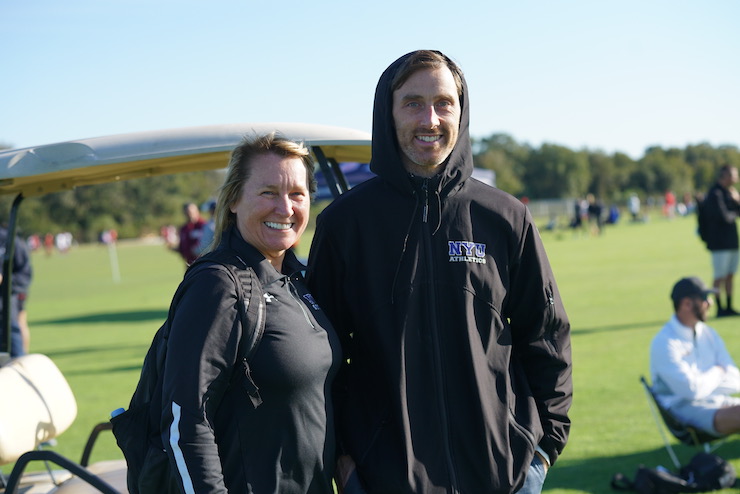
Diane Scavuzzo: How long have you been the head coach at NYU for Men’s Soccer?
Kim Wyant: I just completed my fifth season.
I’m very happy at NYU and I have a lot to do at NYU. I’m just completing my 2020 class. This is really my first cycle — with every single player moving forward being a player that I recruited onto to my team — and so that’s very exciting.
It’s very exciting that, in a short amount of time, I’ve been able to have success and get to the NCAA tournament already.
Diane Scavuzzo: Congratulations. What do you think is the main difference between coaching men and coaching women?
Kim Wyant: I don’t think there are really big differences.
I think obviously the male game moves faster. The players are generally bigger and stronger so the game can be more direct. That’s it.
The players are players. Each player has their own individual needs, their own individual ways that we coach them.
It’s about bringing a group of individuals together and get them moving in the right direction for the benefit of the group.
The soccer field is the same size, the number of players is the same. It’s just the pace of the game is different on the men’s side.

Diane Scavuzzo: What is it that attracts you to a player that you want to recruit? What catches your eye most about a player?
Kim Wyant: Oh, there are several things, I think the one thing that I really value as a coach is the work rate of the player. And it’s not as simple as that.
It’s like the totality of the work rate, including the competitiveness of the player.
Watching the field, I can tell how competitive a player is, how much a player wants to win.
It’s sort of an intangible.
Many of these players that we look at, they all are very technical. They’re all very well-coached in terms of knowing the game at the stage that they’re in and so for us, it’s looking at these intangibles.
Can we find these intangibles we look for? And do they put a player in a different spot than another player who we’re comparing them to?
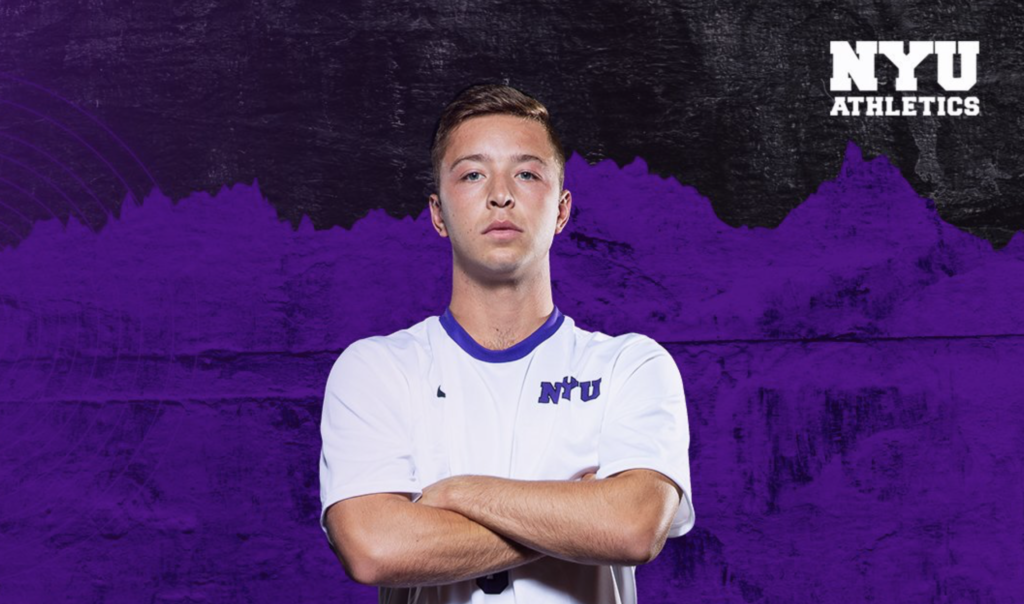
Diane Scavuzzo: NYU is a unique campus. It’s a unique environment. Being a D3 school, how competitive do you feel your squad is? How competitive do you feel the game is at the D3 level?
Kim Wyant: I think that this is one major difference that I can draw between the men’s and the women’s game, especially on the college level — one the male side, the depth and the quality of a Division III soccer players has a very fine line between them and a player who plays in Division II versus a Division I model where those are money players.
The women’s side is different because there’s more money for players — so the difference between the Division III female player and a Division I is more stark, although Division III women players are very good as well.
A lot of recruits come to NYU and inevitably say, “Oh, I want to play at a Division I level. I say “You don’t have to worry about that. We’re a Division III school but you’re going to play with Division I quality players because those are the type of players that we’re recruiting and that we’re getting.”

I have players on my team who could easily play at a Division I school but they choose to come to NYU because it’s in New York City, because it’s a great academic school, and because they can have this great, fantastic competitive soccer environment as well.
Diane Scavuzzo: You clearly love the game of soccer…
Kim Wyant: I’m a “soccerholic” — I watch soccer at every level. There are definitely differences.
My personal mission is professional development and moving the barrier forward and breaking barriers.
Diane Scavuzzo: I liked the idea of NYU being so blase about you being a woman coaching a men’s team — because it shouldn’t be that unusual. Gender should not be the deciding factor as to who coaches a team.
Kim Wyant: I’m very happy at NYU —it is a great institution. I have all the tools there that I need to be able to be competitive. A woman coaching a men’s team is no big deal at NYU, you know? There’s female leadership all over the place.
Read More: Kim Wyant – Staff Directory – New York University





